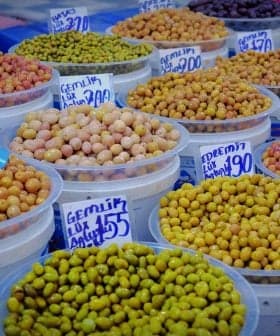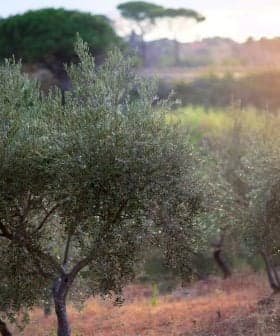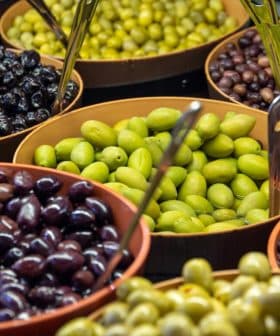Coronavirus Epidemic Hits Italy's Agriculture Sector
The rising number of coronavirus infections across northern Italy has impacted every corner of the country's agriculture sector, from harvesting and production to tourism and exports.
Italy’s agricultural industry is being impacted by the coronavirus epidemic, with strict measures affecting harvesting, packaging, and transportation. The country’s agricultural exports are at risk due to additional certifications requested by some European countries, leading the Italian minister of agriculture to argue against these requirements and call for urgent action to support farmers.
As the number of confirmed coronavirus cases surges to 400 in Italy, the country’s agricultural industry is already feeling the impacts of the epidemic.
Harvesting, packaging and transportation have all been deeply affected by strict measures introduced by the Italian government to contain the spread of the virus.
We can not accept the further certifications for Italian goods requested by some national authorities, because there is no risk of infection whatsoever in handling food and packages.
To make things worse, several European countries have started asking Italian suppliers for additional and more comprehensive certifications on imported Italian goods. Others have enforced regulations that could reduce the availability of foreign seasonal workers ahead of the next harvest.
Restrictive measures have been mostly applied in the north of the country. Just south of Milan, the epidemic led the government to define a ‘red zone’ — eleven municipalities no one can access or leave.
See Also:Production NewsMilan itself and several other municipalities in the Lombardia and Emilia-Romagna regions were declared ‘yellow zones,’ where “maximum caution” is urged for all citizens and workers.
That region is one of Italy’s most important industrial and agricultural districts, where measures of restricted movement are affecting the ability to process, package and dispatch products for domestic and international markets.
The farmers association, Coldiretti, underlined how hard the agriculture industry could be hit if the seasonal foreign workers could not come to Italian fields.
“The fourteen-day quarantine enforced by the Romanian Health Ministry concerns those who reach Romania from the Veneto or Lombardia regions or those who traveled by plane in the last two weeks,” Coldiretti said in a statement. “A decision that drove many Romanian workers to abandon work plans in Italy just before the spring season, when the agricultural activities in the field begin everywhere.”
However, in spite of travel limitations and the threat of disease, some workers plan on coming to the region anyway when the work begins.
“I was here last spring and I will be here this year as well, and I am quite sure that many of my fellow countrymen will do the same,” Stelian Lungu, a Romanian worker in central Italy, told Olive Oil Times. “It does not depend on the virus, it depends on the chance to find a job. Of course, things can always change but, as long as there are jobs available, they will come no matter what.”
The scenario could change, depending on how effective the adopted measures will prove at stopping the epidemic.
Also at stake are Italy’s agricultural exports, which in 2019 accounted for one-quarter of all agribusiness revenue, according to Coldiretti.
“We can not accept the further certifications for Italian goods requested by some national authorities, because there is no risk of infection whatsoever in handling food and packages,” Teresa Bellanova, the Italian minister of agriculture, said.
She argued that the additional requirements being made by some European countries are illegal.
“We are committed at every level to avert any blockade against Italian exports,” she said. “It represents unfair competition, it must be denounced and immediately halted.”
Action has been deemed urgent by the Italian authorities. Several commercial ports have already encountered problems in unloading Italian freighters in part due to the ports’ own personnel not willing to meet with their Italian counterparts and the lack of medical support in these types of import and export operations.
What happens next is unpredictable, but the production chain — the backbone of the Italian agribusiness sector — is already trying to assess the damages.
Every farm is affected by the epidemic. Even the iconic farmhouses in Tuscany, land of olive oil and wine, are now facing a mass-cancellation of reservations by international guests.
Nobody knows when the emergency will be over and those uncertainties do not help. Many across the sector believe some form of support from the government will be needed by farmers and added-value companies.
All stakeholders meanwhile are looking to the European Union to find a common strategy in dealing with the virus and its consequences.









